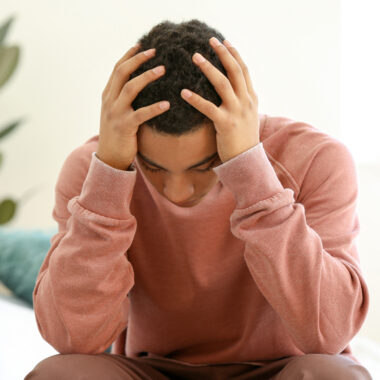LSD, also known as acid, is a powerful psychedelic drug – this means people who take…
read more
How your day affects your sleep
A good night’s sleep isn’t just down to a good bedtime routine.
During the day:
- Avoid caffeine after midday. Did you know that caffeine has a 6 hour half-life? This means there’s still about 50% of that caffeine in the body 6 hours after you last had caffeine. Caffeine blocks the brain’s ability to feel sleep but once this wears off, you may feel very sleepy. Caffeine can be found in chocolate, energy drinks, painkillers, tea and more.
- Avoid drinking alcohol late in the evening. Alcohol is a sedative and has an initial relaxing effect. However, as it starts leaving the body, sleep becomes quite restless and dreams increase which leads to a bad night’s sleep.
- Avoid napping in the day if possible. Naps during the day are generally discouraged (unless you are living with a long-term physical health condition). This is because naps impact on the night sleep as it steals sleep from the night. If you are tired or feeling unwell, a short 20-minute nap can be helpful. If you sleep for longer than 20 minutes the full sleep cycle will begin. Your body will then enter a deep sleep and if you are woken up during this stage you will feel worse.
- Try and associate your bed with sleeping. Use your bedroom for sleep only. Try not to watch TV, go on social media, make phone calls, text, eat, exercise, do homework, listen to music etc in the bedroom. If possible, remove everything unrelated to sleep, such as the TV and computer from the bedroom (or at least away from your bed). If you do have a short nap in the day, avoid napping on the sofa, try and sleep in your bed only.
- Do some light exercise late afternoon or early in the evening. Exercise has shown to increase sleep efficiency. However, high intensity exercise just before bedtime can have the opposite effect.
Before bed:
- Avoid getting into bed until you feel “sleepy tired”. Sometimes people are physically tired but not sleepy. Sleepy is when you feel you can’t keep your eyes open, you’re nodding off or yawning a lot. These are your signs to take yourself to bed.
- If you find yourself worrying when you are trying to get to sleep, quickly jot down the worry onto a piece of paper (keep it near your bed for moments like this) and tell yourself you will think about it tomorrow, then refocus on your breath or try a relaxation technique.
- If you get disturbing images when falling asleep, open your eyes and remind yourself of where you are and that you are safe.
- Set an alarm to rise at the same time each morning (you can vary this time by 15 minutes) 7 days a week. This helps your body keep in a routine. The time you wake up is more important than the time we go to sleep.
- Separate the day and the night by a 90 minute Buffer Zone. Sometimes the brain can’t ‘switch off’ after a busy day so try not to do anything stimulating or mentally demanding 90 minutes before bedtime. This 90 minute period is referred to as a Buffer Zone. Things you can do to unwind before bedtime can include a warm bath, writing in a diary, reading a book, listening to relaxing music or colouring. If you struggle with anxiety or excessive worrying, you might find it helpful to dedicate 20 minutes of the Buffer Zone for some Worry Time. During this time, you can write down all the worries from the day, to think about how to resolve some of them, plan the following day and let go of the worries that we can’t do anything about. It is important to create space for the Buffer Zone that is NOT in bed.
- Follow the 15 minute rule:

When you wake up:
- Check your to do list or any of the worries you may have written down during the night and action some of the things so you don’t have to worry about them again
- See the day light by opening the curtains, windows or going outside for a few minutes if possible. Exposure to sunlight regulates the body clock and helps with the sleep hormone melatonin production later in the night.
- If sleep has been inconsistent and you are unsure why, keeping a sleep diary may help. As soon as you wake up, make a quick note of your wake up time as well as bed time and the time you think you fell asleep (your best guess!). Also make a note of any awakenings you had and how long those were. If the night was following a stressful day, write down what happened and how you dealt with it so that it becomes easier to recognise triggers in the future. You can do this in your notebook or use an app such as Sleepio.
How to get help
If you have any more questions on this area or would like to speak to somebody about this topic, have a look at the links or search for your local services in the blue box below. Alternatively you can always contact your school nurse.

Find help in your local area
Find help in your local area
Find out what services are available to you in your area. Remember your school nurse is always there to give you confidential help and support.



